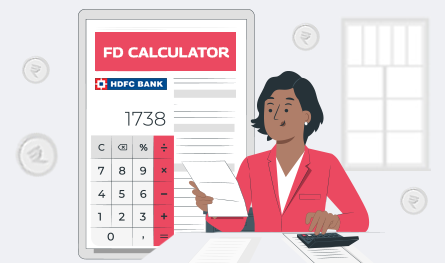Related Articles
 Jan 08, 2025
Jan 08, 2025
Is Varicose Vein surgery covered under the health insurance policy in India
 Health Insurance
Health Insurance
.png)
Suraj is a chain smoker and he has been smoking for over 6-7 years now. Recently he was looking for a health insurance policy to cover him for emergency medical needs. He checked with lot many insurance providers and found out that he has to pay a higher rate of premium for the same policies that his friends are using at a lower premium rate. He enquired further and it turned out that because of his smoking habit, the insurance companies are asking for higher rate of premium from him, while his non-smoking friends are paying much lower premium amount for similar policies.
It is important for everyone to lead a healthy lifestyle by following a healthy routine to protect your health better against diseases. Smoking is a bad habit and it is harmful for the human body.
In insurance, people with past history of critical diseases and toxic habits like smoking tobacco, consumption of alcohol, or using drugs are charged with higher premium amount for their health insurance policies as compared to health insurance premium for non smokers. This is because these critical diseases and unhealthy habits lead to medical conditions that cost more money in treatments as compared to treatment of non-smokers. Thus, such factors affect your insurance plan premium.
.png)
Normally, a person is tagged as a smoker who consumes tobacco, cigar, cigarette, nicotine etc. In case of health insurance companies, they enquire a person about his/her habits of smoking and accordingly perform a pre-medical health checkup. On the basis of this check-up, a person is classified into 4 diverse categories. These categories are namely:
This way the insurance companies decide the health insurance premium for smokers as per the set categories. In terms of premium rate, the smokers who fall under the Table rate category are likely to pay the maximum premium. The typical and preferred category smokers can have some respite because they have lesser risk of getting smoking related diseases.
Of course, smokers are allowed to get a health insurance policy. But a smoker has to pay higher premium on his/her policy as most insurance companies levy high premium rates on smokers. Be it any policy, the premium paid by smokers automatically increases as compared to non-smoking insurance policy owners. However, it entirely depends on the insurance company as to how much premium they want to levy on a smoker. In addition, the category of smoker that you are categorized into also decides the premium you are likely to pay.
Despite the premium rate, you should not be discouraged from getting an insurance policy for yourself as it is very important and can aid you in case of a medical emergency.
There are strict legal action levied on the policy owner who lies about his/her habit of smoking. Thus, hiding about your smoking habit is not a good idea. In case of an emergency, if smokers get hospitalized for a treatment related to their smoking condition, the insurance company will not provide compensation for their claims. Also, the insured person (smoker) has to pay for the entire amount of the compensation from his/her pocket. Thus, it is best not hide your smoking habits while buying an insurance and reveal everything to the insurer.
However, in case a smoker decides to quit smoking to enjoy lower premium on insurance policy, then in that condition he/she has to quit smoking for minimum 2 years to be categorized as a non-smoker.
Here are some common reasons for high premium rates for smokers:


Paybima Team
Paybima is an Indian insurance aggregator on a mission to make insurance simple for people. Paybima is the Digital arm of the already established and trusted Mahindra Insurance Brokers Ltd., a reputed name in the insurance broking industry with 17 years of experience. Paybima promises you the easy-to-access online platform to buy insurance policies, and also extend their unrelented assistance with all your policy related queries and services.
So, you’ve crossed the fabulous 60 mark. Retirement may be on the cards, your kids might be off doing their own thing, and suddenly your knees are making more noise than your WhatsApp notifications. Welcome to the senior citizen club.
Now let’s talk about something most of us tend to postpone until a doctor gives us a reality check: health insurance. If you are wondering whether buying health insurance after 60 makes sense, the answer is a loud and clear yes. This article will cover everything you need to know about it, how it makes sense, how it differs from health insurance for young adults, and what you need to look out for when checking for medical insurance above the age of 60.

.png)
April 2 is observed as World Autism Awareness Day and there is no better way to observe the day than to raise awareness of this condition and to promote kindness towards autistic people. Read on to know more.


Car depreciation implies the difference between the cost of a car at the time of buying the car and when you sell it. A car insurance claim amount is determined by the car depreciation rate. The car depreciation rate is the reduction in the value of your car over its lifespan caused by wear and tear.


Fixed Deposits (FDs) are one of the safest ways to grow your savings. HDFC Bank offers attractive FD interest rates, allowing you to earn guaranteed returns on your investment. But before you invest, it's important to know how much interest you will earn and what your final maturity amount will be.


If you think of life insurance, chances are you are picturing something people buy in their 30s or 40s. But what if you are 65 or older and just getting started? The good news is that you are never too late. Whether you are thinking of easing the financial burden on your family, covering final expenses, or simply leaving behind a legacy, there are life insurance options tailored just for you.
This article will be a guide to life insurance for senior citizens above 65 years, explaining why it is important, the type of insurance options, and how to get the right policy for you.
